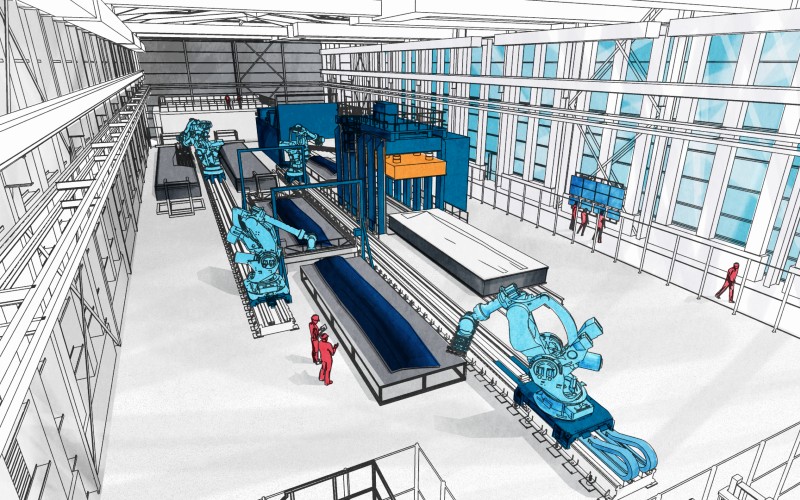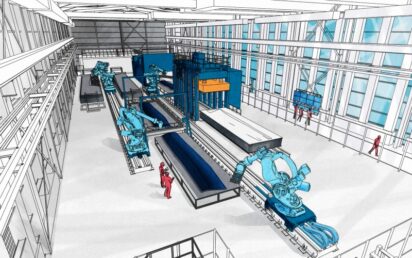Communities in Sheffield, Rotherham, Doncaster and Barnsley are set to benefit from thousands of new jobs and £1.2 billion of potential investment as part of the UK’s first Advanced Manufacturing Investment Zone.
Chancellor Jeremy Hunt announced the first of 12 Investment Zones, aimed at bringing opportunity into areas which have traditionally underperformed economically and based around a university and clusters of high-growth industries.
The Investment Zone includes the University of Sheffield and Sheffield Hallam University. The government said it expects more than £1.2bn of private funding in the areas to help support more than 8,000 jobs by 2030, with government funding worth up to £80 million.
Hunt met executives from Boeing at University of Sheffield Advanced Manufacturing Research Centre’s Factory 2050, a manufacturing technologies research and development facility.
More than £80m of private investment has already been pledged towards a portfolio of research & development projects, backed by Boeing, looking at the future of aerospace. Boeing will work with industry partners Spirit AeroSystems and Loop Technology at Factory 2050 in Sheffield Business Park.
The project, co-funded by industry and government, including through the Aerospace Technology Institute programme, and with support from the South Yorkshire Mayoral Combined Authority and the University of Sheffield, puts the UK at the cutting edge of aviation research, development and manufacturing as demand for commercial aircraft is forecasted to be greater than 40,000 over the next 20 years.
Boeing has a long history in South Yorkshire – its programme can be traced back to the company co-founding the AMRC with the University of Sheffield around 22 years ago. Since then, the AMRC has spawned the advanced manufacturing campus in the former brown-field site including Boeing’s first European factory.
The news follows a joint announcement by the UK and Scottish Governments that there will be two Investment Zones in Scotland, with Glasgow City Region and North East of Scotland offering the most potential to host these. Discussions will now begin with both regions to develop detailed proposals.
Each Investment Zone will be backed with £80m of support for a range of interventions which could include skills, infrastructure and tax reliefs, depending on local circumstances. The zones will help drive growth in the government’s key growth sectors including advanced manufacturing, life sciences, green industries, digital and technology and creative industries.
The government is also working closely with the devolved administrations to establish how Investment Zones in Wales and Northern Ireland will be delivered.
Government ‘to unlock £75bn pension fund capital for startups’


